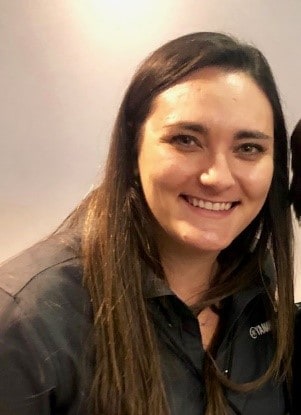North Carolina Launches Medicaid Managed Care Program... The Jury Is Still Out
A look at North Carolina’s Medicaid Managed Care Program and how the shift might impact consumers
THE VBP Blog

On July 1st, North Carolina’s Medicaid Managed Care Program launched to over 1.6 million consumers with the intention of creating a whole-person care system. The goal of the program is to improve the quality of care that consumers receive while lowering costs. The innovative health care system puts the health of consumers who need it most at the forefront and features payment structures that reward better health outcomes.
Under this program, Medicaid consumers in the state will receive care from one of five commercial health plans managed by private insurance companies. A sixth plan that is run by the Eastern Band of the Cherokee will be available for tribal members. These work with the commercial managed care organizations (MCO’s) to provide comprehensive care, creating a whole-person solution to care.
North Carolina’s Shift to Medicaid Managed Care
Since 2005, North Carolina has had a Medicaid Primary Care Case Management (PCCM) system in place to manage the I/DD community. This was a fee-for-service (FFS) structure designed to provide high-value care with predictable costs, but there was a lack of standardization.
Over time, the North Carolina General Assembly became frustrated with the inability to accurately predict costs. There was a large fluctuation in program costs that made it difficult for the state to budget appropriately. Spurred on by this, in 2015, the General Assembly passed legislation requiring the DHHS to shift from an FFS model to managed care.
Once the legislation was passed in 2015, North Carolina began its transition to managed care. However, the program was tied up in court for over three years.
Companies that lost out on bids for a share of the $30 billion that North Carolina will spend over the next 5 years filed a slew of challenges in court, alleging that the DHHS improperly reviewed and awarded bids. Aetna, one of the companies that filed a challenge in court, lost out on being awarded the bid by a razor-thin margin in the scoring system implemented by DHHS. The motion requested that the contracts be tossed out and the procurement process started over, due to perceived conflicts of interest.
My Health by Health Providers, a Provider Led Entity (PLE), also lost out on a bid. They argued that the contract award process gave a weighted bias to traditional health insurance companies. My Health is a consortium of major hospital systems in NC that serves over 1 million Medicaid consumers every year. They argued in court that they are already in the state and familiar with the health needs. They were the highest PLE scorer in the bidding process but still were not awarded a contract.
Despite numerous contests in court, the Superior Court ruled in favor of NCDHHS in February 2021 and was given the green light to go ahead with the program launch on July 1st. Through the legal battle though, both the LME/MCO’s and the state incurred huge expenses and created provider and consumer uncertainties. These may have been avoided with better award system design and stakeholder engagement from the start and are something for other states to take note of.
Managed Care Program Launch
The program launched July 1, 2021, and impacted approximately 1.6 million Medicaid beneficiaries in North Carolina.
“July 1 marks a significant milestone with the official launch of Medicaid Managed Care in North Carolina,” said North Carolina Department of Health and Human Services Secretary Mandy K. Cohen, M.D. “From the start of this process, our goal has been to improve the health of North Carolinians through an innovative, whole-person centered, and well-coordinated system of care.”
The program is designed for care to be managed by primary care providers. The Local Management Entities (LMEs) are owned by local providers in collaboration with Managed Care Organizations (LME-MCOs). This allows the person closest to the patient to manage their care.
Primary care providers can also coordinate any necessary mental and behavioral therapy for patients and ask them about social factors that affect their health, like whether or not they have transportation to medical appointments, safe housing, or enough food. The ability to refer patients for social services and follow-up on those referrals take things a step further towards improving health outcomes. As does tying compensation to improvements in patients’ health, which is something else North Carolina is doing.
Too Early to Declare the Program a Success
With North Carolina’s managed care program launch on July 1, time will tell if the program is a success. The state certainly seems to check all the boxes when it comes to designing a person-centered care program, but like all state-managed care programs, there will be some hurdles for North Carolina to overcome.
One question is whether or not health plans will offer enough providers in rural areas. This is a challenge that affects patients in all states, so it will be interesting to see how North Carolina approaches the issue.
Another issue is that of the 1.6 million Medicaid beneficiaries in North Carolina, only 200,000 chose their health plan. That left 1.4 million to be auto-enrolled in one of the five health plans. This can create confusion, especially if individuals are assigned to health plans that don’t cover their current providers. Enrollees can change their plan assignment in the first 90 days for whatever reason, but this can still cause upheaval and gaps in services and care.
Despite these small hurdles, initially, there are strong hopes for the state’s Medicaid Managed Care program.
Advocate’s Perspective
Having an LME-MCO system creates a dynamic health system for consumers in North Carolina. This long-awaited program should be able to create comprehensive and integrated whole-person care by creating a regional + commercial approach. This directly points to provider-led networks being the future of value-based payment structures for consumers. The program’s lengthy approval proves that the importance of the design of the program is associated with how bids will be “scored”, causing huge expenses and consumer uncertainty. To increase stakeholder engagement, the overall program could have used a level of stability from the beginning which only time will tell how it will fare.
Onward!
Share This Blog!
Get even more insights on Linkedin & Twitter

About the Author
Fady Sahhar brings over 30 years of senior management experience working with major multinational companies including Sara Lee, Mobil Oil, Tenneco Packaging, Pactiv, Progressive Insurance, Transitions Optical, PPG Industries and Essilor (France).
His corporate responsibilities included new product development, strategic planning, marketing management, and global sales. He has developed a number of global communications networks, launched products in over 45 countries, and managed a number of branded patented products.

About the Co-Author
Mandy Sahhar provides experience in digital marketing, event management, and business development. Her background has allowed her to get in on the ground floor of marketing efforts including website design, content marketing, and trade show planning. Through her modern approach, she focuses on bringing businesses into the new digital age of marketing through unique approaches and focused content creation. With a passion for communications, she can bring a fresh perspective to an ever-changing industry. Mandy has an MBA with a marketing concentration from Canisius College.